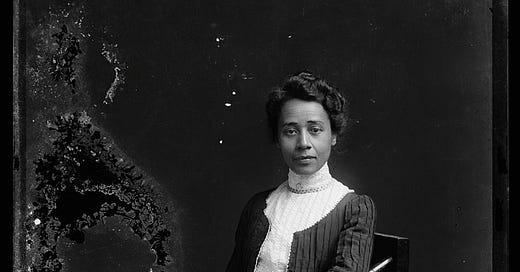“You will not find theology consigning infants to lakes of unquenchable fire long after women have had a chance to grasp, master, and wield its dogmas. You will not find science annihilating personality from the government of the Universe and making God an ungovernable, unintelligible, blind, often destructive physical force; you will not find jurisprudence formulating as an axiom of the absurdity that man and wife are one, and that one the man—that the married woman may not hold or bequeath her own property to save as subject to her husband’s direction; you will not find political economists declaring that the only possible adjustment between laborers and capitalists is that of selfishness and rapacity— that each must get all he can and keep all that he gets, while the world cries laissez faire and the lawyers explain, ‘it is the beautiful working of the law of supply and demand’; in fine, you will not find the law of love shut out from the affairs of men after the feminine half of the world’s truth is completed.”—(Anna Julia Cooper, A Voice from the South, p. 57-58)
Whew! As you may know I’ve been reading through Rev. Dr. Karen Baker-Fletcher’s A Singing Something: Womanist Reflections on Anna Julia Cooper. The above quote, written in 1892, is included in the chapter on womanhood. And it got me thinking how different Christian theology could be. Imagine if the early creeds of the faith were inspired not by men like Athanasius, Cyril, or Augustine, but by their mothers and sisters. Or if we only knew the names Luther, Calvin, and Wesley because they proceed Margarethe, Jeanne, and Susanna.
I don’t really have any commentary on Dr. Cooper’s words, since I think they speak for themselves. I just lament that the Christian tradition didn’t have the foresight to give women the “chance to grasp, master, and wield its dogmas.” If they did, as Jesus seemed to, maybe we wouldn’t have inherited the retributive god of Augustine and Calvin1 who “[consigns] infants to lakes of unquenchable fire,” or a god of all of their (and our own) sexism, or the American evangelical god of “laissez faire” (or “trickle down”) economics. Perhaps it’s not worth contemplating the “what ifs.” But maybe contemplating the “what ifs” help prompt our imaginations. Perhaps imagining what it might be like if our creeds, doctrines, and theologies were inspired, formulated, and crafted by the “feminine half of the world” can encourage us to make that a reality now. Their words are already out there, ready to inspire. Better late than never?
I understand this is a caricature :)





I couldn't like it because I'm not a feminist, but I always enjoy your posts.